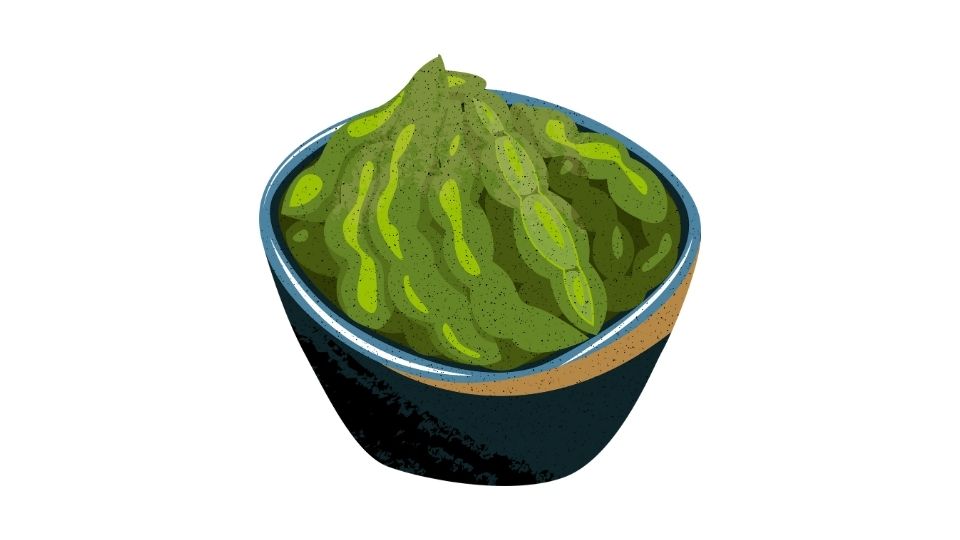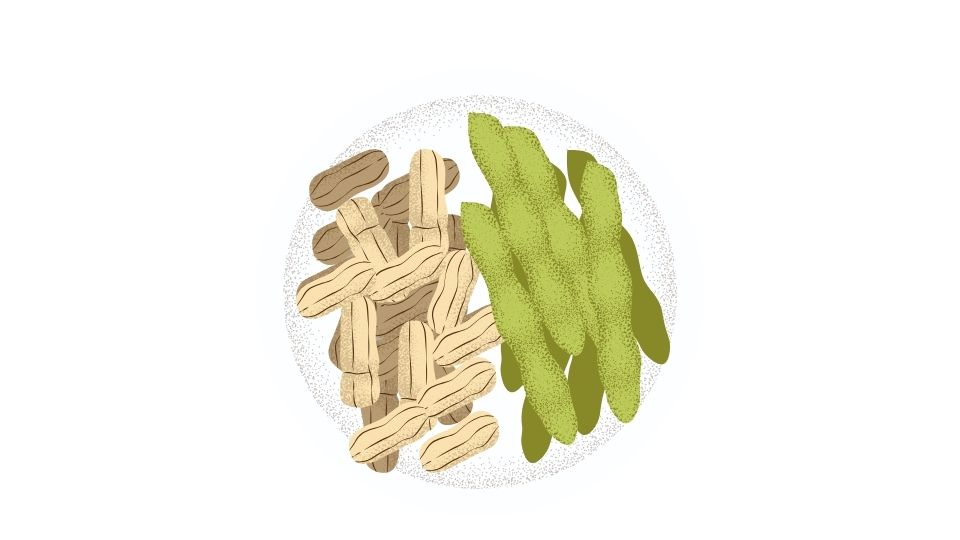Edamame packs a serious protein punch! If you’re looking for plant-based gains, you’re gonna want to hear this: a pound of these little green soybeans contains between 108 and 118 grams of protein.
That’s no joke – we’re talking about a legitimate protein powerhouse here.
But before we dive deeper, let me answer the question you’re actually wondering.

How Much Protein is in a Pound of Edamame?
Let’s do some quick math (I promise it won’t hurt):
- 100 grams of cooked edamame = about 12 grams protein
- 1 pound = 454 grams
- So… 454 × (12/100) = roughly 54 grams per half pound
- Which means a full pound gives you approximately 108 grams of protein
Depending on how it’s prepared and measured (shelled vs. unshelled), that number might creep up to around 118 grams.
Why Edamame is a Protein Superstar

Unlike some plant proteins, edamame doesn’t mess around. It’s a complete protein source containing all nine essential amino acids your body can’t make on its own. This makes it especially valuable if you’re:
- Vegetarian or vegan
- Trying to reduce meat consumption
- Looking for cleaner protein sources
- Bored with chicken breast (we’ve all been there)
But wait, there’s more! These little green pods deliver way beyond just protein:
- High fiber (about 22g per pound)
- Healthy fats (mostly the good kinds – poly and monounsaturated)
- A boatload of micronutrients including iron, calcium, and folate
As Harvard Health Publishing notes, incorporating plant proteins like edamame can significantly improve your overall diet quality.
How to Use This Information in Real Life

If you’re tracking macros (and who isn’t these days?), here’s what this means for your meal planning:
One cup of cooked edamame (about 155g) provides roughly 18-19g protein.
So if you’re aiming for that magical 30g protein per meal that research suggests is optimal for muscle protein synthesis, you’d need:
- About 1.5-2 cups of edamame
- Or roughly 1/3 pound
That’s totally doable as part of a balanced meal!
Tracking Your Edamame (and Everything Else) Without Losing Your Mind

Let’s be real – nobody wants to weigh and measure every bite they take. That’s a recipe for diet burnout and unhealthy obsession.
Instead, consider using technology to make tracking easier. MealByMeal.com lets you simply text your meals and automatically tracks all your nutrition data without the hassle of traditional food logging.
According to The American Journal of Clinical Nutrition, tracking your food intake is one of the most effective strategies for weight management – but only if you can stick with it.
The Complete Nutrition Breakdown per Pound
Here’s what you’re getting in every pound (454g) of cooked, shelled edamame:
| Nutrient | Amount | What That Means For You |
|---|---|---|
| Protein | 108-118g | That’s more than a pound of chicken breast! |
| Calories | ~540-600 | Moderate calorie content for the protein payoff |
| Carbs | ~62g | Includes about 22g of fiber |
| Fiber | ~22g | Nearly a full day’s worth! |
| Fat | ~24g | Mostly the heart-healthy kind |
| Iron | ~9-10mg | About half your daily needs |
| Calcium | ~400mg | Great for bone health |
So Should You Start Eating Pounds of Edamame?

Probably not all at once!
But seriously, edamame deserves a regular spot in your meal rotation if you’re looking to:
- Boost your protein intake
- Improve digestive health
- Get more plant-based nutrition
- Add variety to your diet
The Academy of Nutrition and Dietetics confirms that incorporating foods like edamame can help meet protein needs without relying solely on animal products.
Just be aware that some people have soy allergies, and others prefer to limit soy intake for various reasons. As with anything, moderation is key.
But the next time someone questions where you get your protein? Point to your bowl of edamame and drop the mic.




Leave a Reply